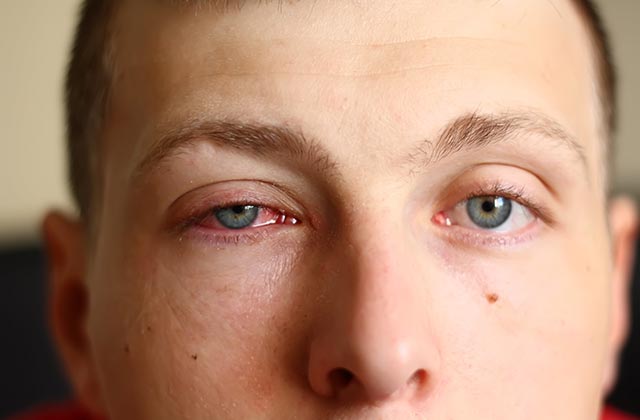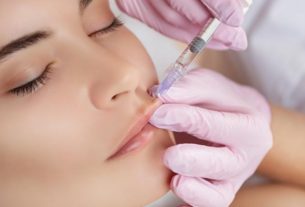Pink eye or also called conjunctivitis is an eye infection or inflammation of the conjunctiva or the transparent membrane that covers the white part in our eyeball and lines the eyelid. The infection causes the small blood vessels in the transparent membrane (conjunctiva) to be inflamed, resulting in them being more visible. This is the reason why the white part of the eye becomes red or pinking.
Having a pink is often caused by a bacterial or viral infection, allergic reaction, or an incomplete opened tear duct for babies.
Experiencing a pink eye can be irritating, itchy, and uncomfortable but it does not affect the ability of the eye to see clearly. Although it does not affects one’s vision, having pink eye can still be dangerous as it can be contagious and can easily be spread through direct contact. Delivering early treatment and diagnosis can help lessen the risk of spreading it.
What are the symptoms of having pink eye?
Here are some of the most common symptoms of pink eye:
- Experiencing redness in one or both eyes
- Experiencing itchiness in one or both eyes
- Having a gritty feeling in one or both eyes
- Discharge coming out from one or both eyes that dry up and can prevent the eyes from opening especially in the morning as you wake up from sleep
- Constant tearing in the eyes
What are the causes of pink eye?
The most common causes of pink eye are:
- Bacterial infection
Both bacterial and viral conjunctivitis can occur along with colds and other respiratory infections like having a sore throat. The wearing of contact lenses without proper sanitation can cause a bacterial infection in the eyes that can lead to pink eye. It is advised to always clean your contact lenses with the proper solutions given by the doctor to prevent bacterial build up in the lenses.
- Viral Infection
Common causes of pink eye are mostly caused by viruses like the adenovirus, herpes simplex virus, varicella-zoster virus, as well as the virus that causes coronavirus 2019 disease, popularly known as the COVID-19.
- Allergic Reaction
Pink eye can be caused by an allergic reaction to triggering substances such as pollen. When your body reacts to an allergen, it produces an antibody termed immunoglobulin E. This triggers the mast cells to produce inflammatory substances in the mucous lining of the eyes. This substance, also called histamine, produces allergic symptoms as well as pink eye.
- Exposure in the eye to a strong chemical or having a chemical splashed in near the eye or directly in the eye
Exposure to strong chemicals can irritate the eyes that can be associated with that having a pink eye or conjunctivitis. Cleaning the eyes from the chemicals can cause redness and irritation. This may result in having symptoms of constant tearing of the eyes, mucous discharge, redness and irritation. This usually clears up after one or two days.
- Blocked tear duct for newborn babies
Here are some of the precautionary measures to prevent having a pink eye caused by various irritation and infection:
- Avoid sharing your things with other people. Things like towels, washcloths, tissue, and such even to your family members. Practice good hygiene and cleanliness especially with these essential things used to wash and clean your face and body. Since pink eye is contagious, the sharing of towels and washcloths can cause the spread of various infectious diseases to you and your entire family.
- Proper sneezing and coughing etiquette. Many infectious diseases are spread through sneezing and cough droplets. Covering the mouth and nose will help in preventing the spread of the virus that may have caused a pink eye.
- Frequent washing and sanitizing of the hands. When going out in public, make sure to wash and sanitize your hands whenever you touch things especially in crowded places like the bus, train, or subways.
- Cleaning your contact lenses before wearing them. The use of liquid solutions that you get from your doctors or eye clinics will prevent bacteria to build up from your lenses. If irritation occurs when wearing contact lenses, you may switch to wearing prescription glasses until redness and irritation subside to avoid further risks. You may also resort to daily disposable contact lenses as these are more hygienic and safe.
- Avoid touching or rubbing the eyes.
- When swimming, wear goggles to protect the eyes from bacteria. Swimming pools may contain bacteria and other microorganisms that can irritate the eyes when exposed.
- If you have seasonal allergies, consult your rocket doctor for proper medication.
Pink eye can be easily treated through online consultations. A lot of medical professionals are available online that specialize in eye care. Try checking any walk in clinic Thunder Bay in your area or consult an online doctor for your eye care needs and checkups. Have your eye checked before your condition gets worse.



